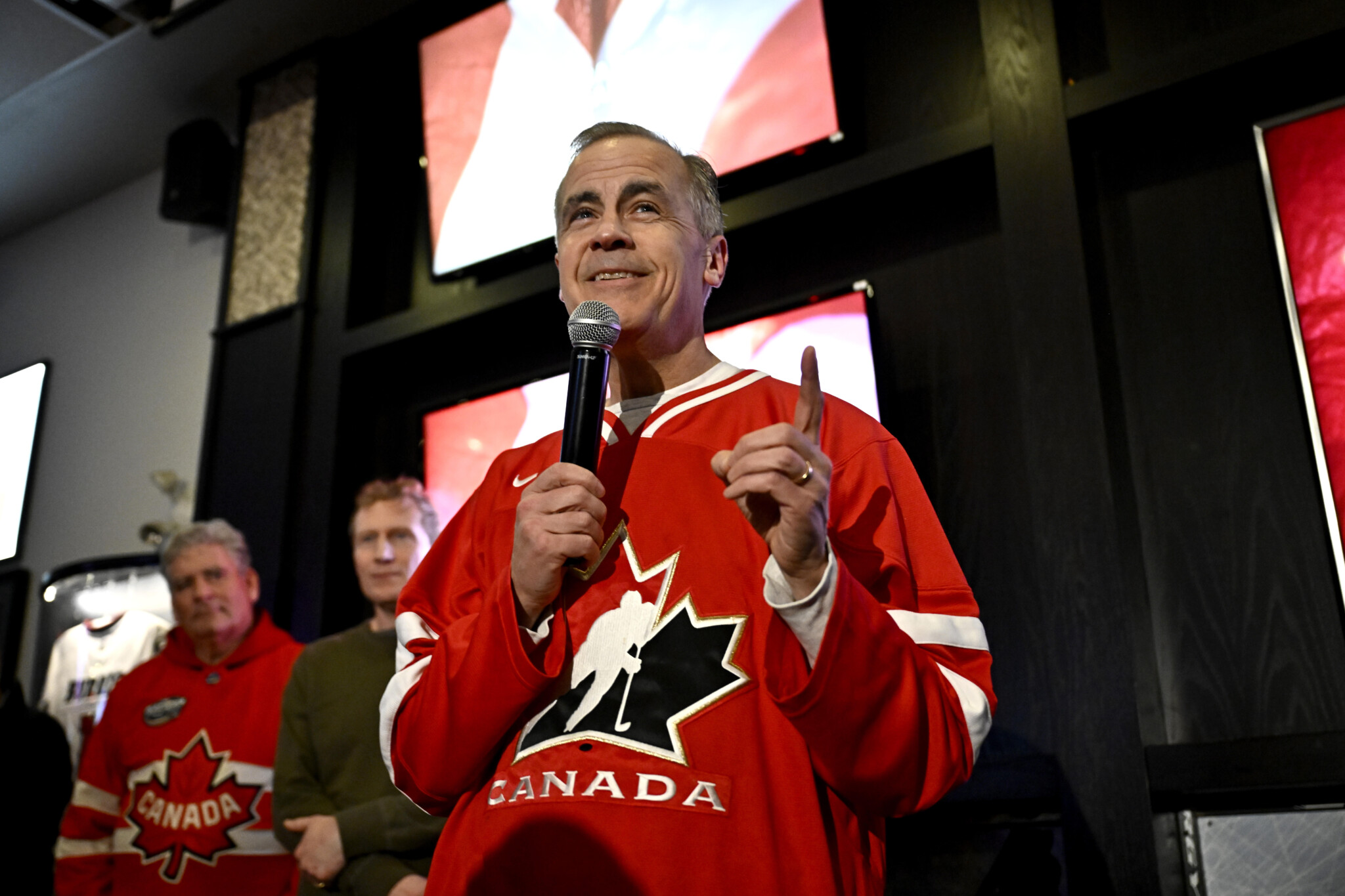With the Liberal leadership debates out of the way, Mark Carney’s front-runner status seems solidified. Notwithstanding his wooden delivery (and a linguistic gaffe on Hamas), Carney is poised to win the leadership and become Canada’s prime minister. He’s also a threat to win the next general election.
The shift in the polls is real. What was once a seemingly insurmountable Conservative lead has narrowed to single digits in some surveys.
And when asked how they would vote if Carney was Liberal leader, some polls even show the party tied or narrowly ahead.
This trend cannot be dismissed.
Carney poses a real threat to the Conservatives.
A steady hand?
Until quite recently, Carney’s elite, subdued, and technocratic personality seemed out of step with the populist mood of much of the Canadian public. Canadians were angry about our declining standard of living, rising crime, our immigration system, and more.
Pierre Poilievre effectively channelled that anger. Voters wanted the strongest anti-Trudeau they could find, and that was a space Poilievre dominated.
But now, while some public anger remains, its main target is about to depart. And that anger is being replaced by fear. There’s a much bigger threat: Donald Trump.
Trump was already unpopular in Canada before he started musing about deliberately destroying our economy and erasing our sovereignty. What some initially dismissed as a joke now looks like a real threat to Canada’s existence as an independent nation. Every time Trump spews forth about Canada becoming a U.S. state, he unites more and more Canadians against him. Trump has become Canada’s common enemy, and that feeling is justified.
As a result, inward anger is now being directed outward—the anti-Trudeau sentiment has been replaced by an overwhelming anti-Trump mood. This is fortuitous timing for Carney. Suddenly, his personality is a much better fit for the moment. What was once ‘boring’ and ‘detached is now seen by some as steady and measured.
Carney’s time as Bank of Canada governor during the 2008-2009 financial crisis (which Canada emerged from relatively unscathed compared to the U.S.) is now an asset. While many Conservatives understandably credit former Conservative prime minister Stephen Harper and former finance minister Jim Flaherty for our successful navigation of that crisis, the mere fact that the Conservatives are now challenging Carney’s crisis credibility is a sign that it’s a threat.
Carney’s campaign is leaning into this messaging. In an attempt to connect the dots between the global financial crisis and today and cast himself as a steady leader in uncertain times, his website talks about how he “guided Canada through one of the most turbulent economic periods in modern history, protecting jobs and helping ensure that Canada came out stronger.”
Carney also appears to be trying to move the Liberals—at least rhetorically—to the centre. At a recent campaign event, he said “We need a government that spends less, but gets the country to invest more.” He’s also been claiming he will push for a balanced “spending budget” and a “middle-class tax cut.”
When combined with his pledge to scrap the consumer carbon tax, it’s clear that Carney is hoping to portray himself as a steady hand and crisis-tested leader, breaking away from Trudeau just enough for Canadians to feel they’ve gotten change without changing the party in control of the government.
A poor campaigner?
Despite a political environment that emphasizes his perceived strengths, Carney is not without weaknesses. To start with, he is not a natural politician.
For example, Carney recently referred to fentanyl as something that is a “crisis” in the United States and only a “challenge” in Canada. This perceived downplaying of the fentanyl epidemic is where his lack of political experience and detached style can tip over into looking callous. An elected official who had witnessed firsthand how the drug is ravaging their riding would never say such a thing.
Those are the types of mistakes that can dominate an entire news cycle during a campaign, and provide an opening for the Conservatives to hit the Liberals on an issue where the Tories are strong (fighting crime). These are also the kind of mistakes Poilievre has managed to avoid.
Carney’s attempted pivot to the centre will also be complicated by his close association with the net-zero movement, a movement that has done significant damage to oil and gas investment in Canada. Declining investment in the energy sector just happens to be a key reason the country is now so vulnerable to a predatory United States.
In the pressure cooker of a federal campaign, will Carney be able to reconcile his moderate image with his advocacy of policies that pushed investment out of Canada?
And will people believe Carney over Poilievre, given that Poilievre was first to critique the policies the Liberals are now running away from?
There is reason to believe that Poilievre still has a better chance of winning each individual news cycle than Carney will. If the Liberal leadership contest has been a coronation, the upcoming federal election will be a grueling, grind-it-out war of attrition, and Carney is far from battle-hardened. The Conservatives will be hoping he’s not up to that test, while the Liberals will be hoping that the desire for a steady hand and an anti-Trump candidate will override all other considerations, which would render the daily news cycle far less important.
We don’t yet know which theory of the case will be vindicated.
But what we do know is that the Conservatives have a real race on their hands.
Those who dismiss Carney at this point would be making a big mistake.










